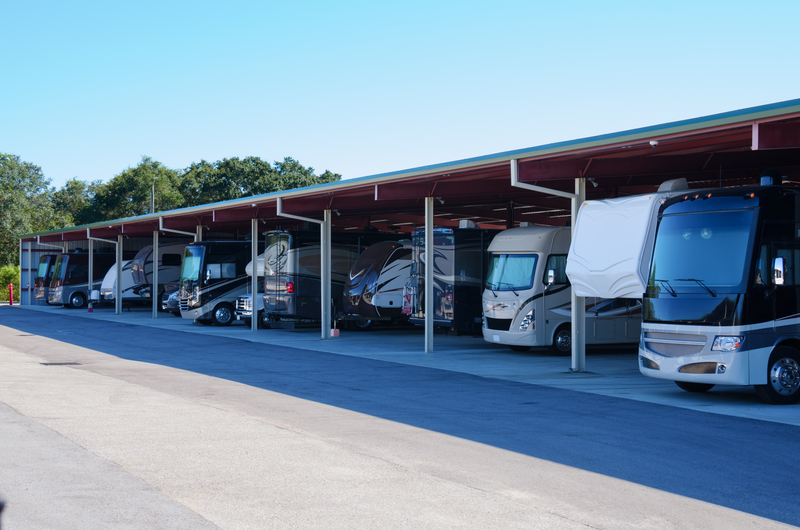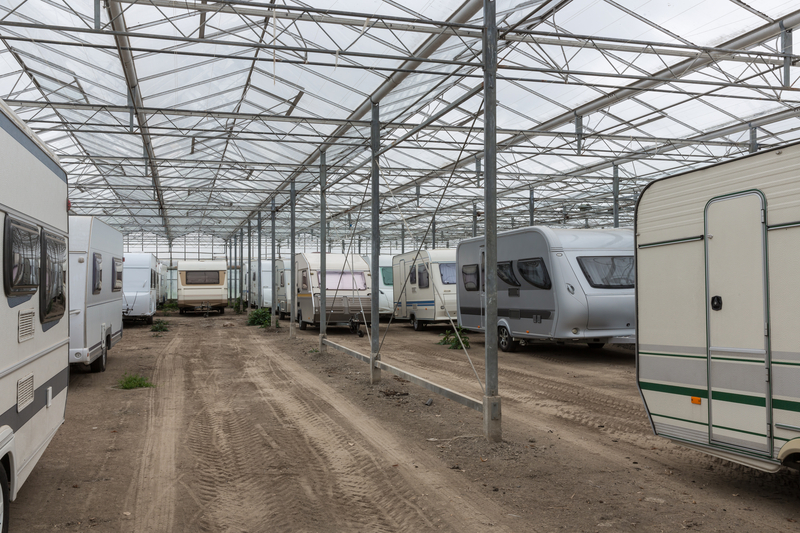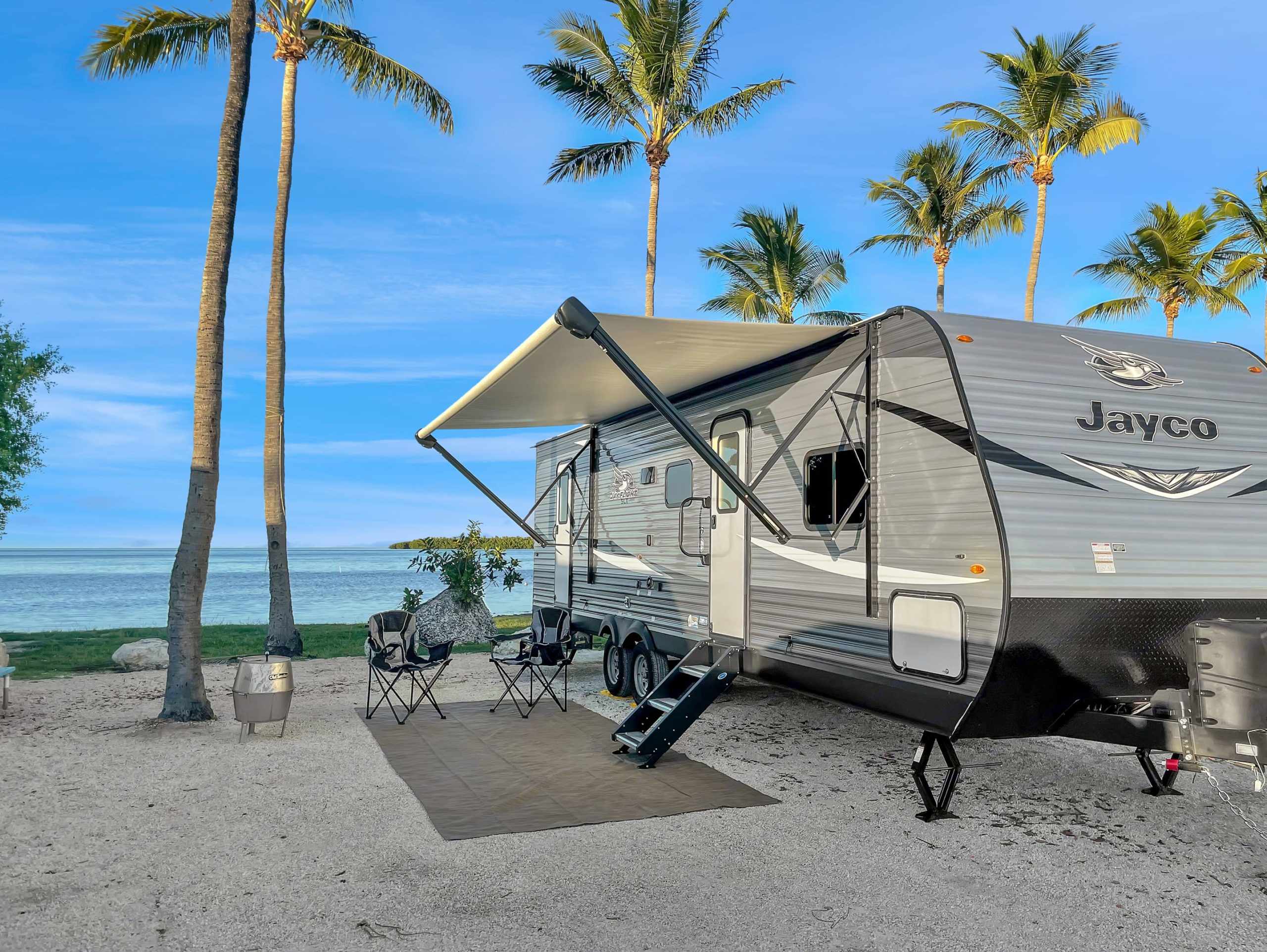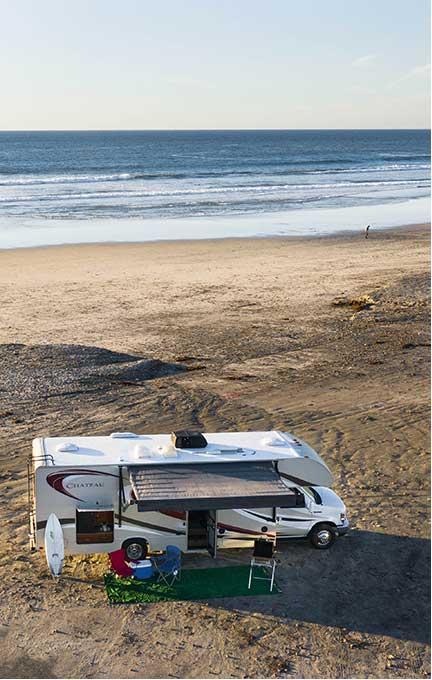Purchasing a motorhome, travel trailer, or RV is exciting, and the promise of the open road, family vacations, solo travel, and freedom is something that many people wait a lifetime to experience. While some people buy an RV to use for themselves, other people purchase an RV to give renters, who aren’t ready to commit to the lifestyle, the opportunity to try out life on the road without the responsibilities of ownership. Regardless of use, all RV owners have a series of things to consider to be able to properly care for their investment, such as where to store the new rig. Before signing on the dotted line, ask yourself, “How much will my new RV cost me to store? And “If I don’t have a place to keep my RV at my house, what is the best way to find an RV storage facility that will fit both my needs and my budget?”
While RV storage rates are the primary concern for new RV owners, price is something that differs, usually depending on your location, the type of storage facility you choose, and the size of storage space that will accommodate your new rig.
We will cover three RV storage facility options:
- Home Storage
- Outdoor Storage
- Indoor Storage
Since RV storage rates are variable, we can’t, in good faith, give you a ballpark cost for storing your RV, but we can provide you with advice on some of the things to research before choosing the best RV storage facility near you.
Home Storage
Storing your RV at home is probably the easiest option when it comes to the proximity of your new rig. These covers will also protect your RV from most elements. Unfortunately, home storage isn’t an option for most owners because of size restrictions, such as building capacity or available land.
If you do have space to store your RV at home, be sure to consider three things:
- the slope of your driveway
- height of your garage doors or carport opening
- neighborhood restrictions
Even if you can park your RV in an outbuilding or designated space, gravel and sloped driveways with turning restrictions can impact your ability to back into a garage safely. If the space works for you, it’s best to double-check that your neighborhood doesn’t have any parking restrictions or HOA covenants that might impact your desire to keep your RV at home, and you should be sure to follow up with your homeowner’s insurance policy to see if your rig is covered under the policy’s umbrella.

Outdoor Storage Facilities
A popular option for many RV owners is an outdoor storage facility. Some storage facilities offer security gates restricting entry, while other places offer 24-hour security staff or surveillance.
Many outdoor storage centers cater to RVs, trailers, and boats, so you can expect amenities like:
- electricity
- dump stations
- potable water
- winterization and de-winterization services
Outdoor storage offers RVers a safe place to keep an RV with, generally, more options for large size motorhomes and fifth wheels. The downfall of outdoor storage is that your rig is exposed to the elements. If you live in a place that has extreme heat, below-freezing temperatures, active hail seasons, or you live in an area of the country that experiences hurricanes and tornadoes, keeping your RV outside might not be an option for you. Even if you can protect your investment using an RV cover or a storage carport cover, be sure to understand your rig’s insurance policy and determine if you are covered if the weather damages your RV while it is stored.

Indoor Storage Facilities
Because the weather is a determining factor for people who are looking for storage options, indoor RV storage facilities can help ease the weather-worried RV owner’s mind. Indoor storage facilities provide peace of mind for the people who don’t want their investment exposed to the elements. Choosing an indoor RV storage building not only provides shelter, but it also keeps both the inside and the outside of your rig at a regulated temperature if you pick a climate-controlled space.
Some upgraded indoor RV storage centers even offer other services like having staff members on-site to assist owners by:
- running generators
- checking RV systems and dumping tanks
- alerting owners if something isn’t working properly
Indoor storage options range from individual garage-sized spaces to large warehouses with designated RV parking. If you want to store your RV indoors, it’s still a good idea to check with your insurance company on your storage protection. Some companies may provide a discount if you choose an indoor storage center with security monitoring and valet-parking options (Yes, those types of centers exist). While the cost of indoor storage is usually more expensive upfront, the benefits and kickbacks of indoor storage might offer you peace of mind, which for some owners, doesn’t have a price tag.

Finding an RV Storage Center Near You
Once you’ve determined the type of RV storage that will work best for your rig, the next step is to find a place that has the amenities that you want in a storage facility. The best way to find a reputable storage facility is by asking for word of mouth recommendations from your friends, neighbors, or members of your RV community. Also, a quick query in a search engine or from a website that caters to people seeking RV storage options will help you find places to store your RV close to you. From there, you will be able to compare facilities that fit your preferences and find the best RV storage rates for your budget. Happy shopping!








